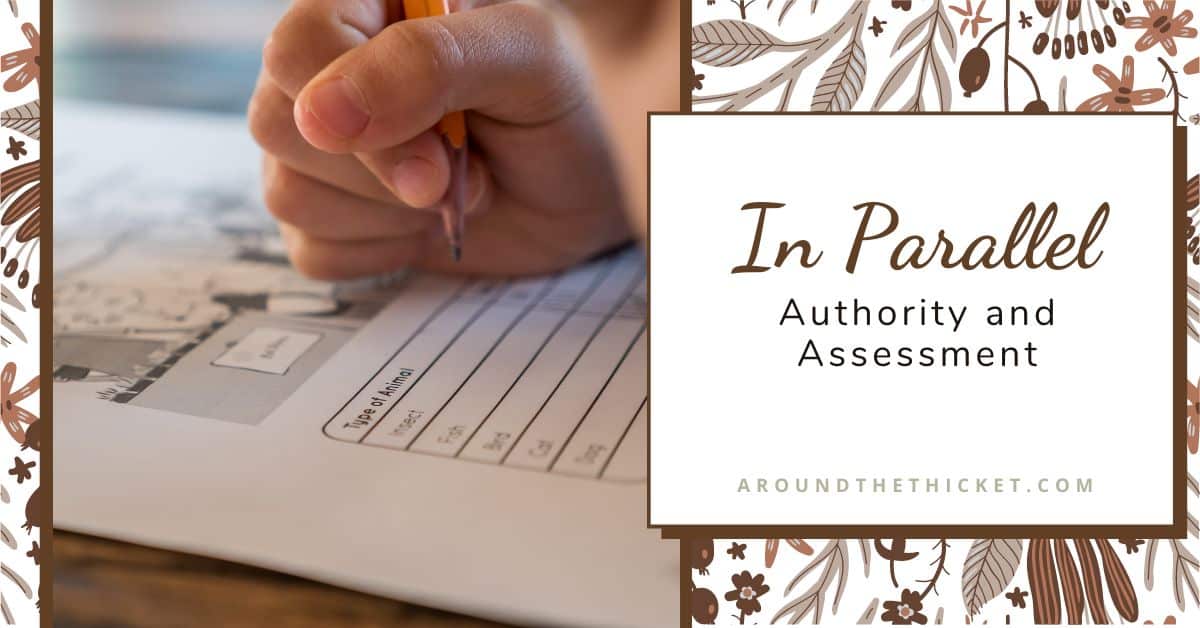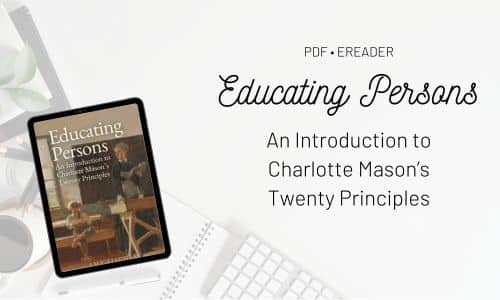In Parallel: Authority and Assessment
At the first lecture for my masters in education, my professor told the class that research was clear: assessment dictates how and what students learn. If you want your students to achieve certain educational goals, you have to get your assessment in line with those goals. For an MA in education designed to prepare students for independent, novel research, this meant that assessments took the form of written papers and self-directed studies. As a consequence of this set up, I learned a lot about how to read academic papers, manage my time, develop an idea for a research paper, carry it out, and write it up.
This is one (of many) reasons that I am an advocate for narration. If we trust that children learn naturally, and that the point of education is to help them develop relationships in many areas of knowledge, narration is the way to go. Narration doesn’t ask a child what the teacher wants to hear, but what connections they have made. It lines up with our goals.
But while narration is a powerful tool, asking and expecting our children to narrate their readings for school requires the teacher to use her authority – to acknowledge that she has been authorized to teach her children so that they grow in the knowledge of God, the Universe, and Mankind, and to act accordingly. We might be a bit squeamish about this or uncertain (see Brandy’s article below), but Charlotte Mason is clear that when it comes to educating our children, narration is fully in line with her principles and aims – starting with respect for children.
Our children are persons, but they are also immature. They aren’t necessarily able to make the best decisions for their future in any given moment. Like Alan Jacobs writes in the article below, they are “Self-Deceived Rational Utility Maximizers”. If they can get away without doing something that requires a lot of effort (like narration or emptying the dishwasher…), they will, because they have other things that they want to do with their time that are more important to them. This leaves the child at the mercy of their whims and their incomplete perspective on what is important down the road. My kids certainly aren’t old enough to connect the dots between narrations and math and copywork now and their opportunities, abilities, and challenges later in life. We don’t need to be squeamish about this.
To Read in Parallel:
“Accountability.” A reflection from Alan Jacobs on why college professors can’t get their students to read for class. I’m always interested in the insights he gives into higher education.
Students have many demands on their time, and they would also like to spend at least some of that time enjoying themselves, so when they look at what they’re supposed to do in any given week, they triage: What has to be done first? That is, what will I pay a price for not doing? Whatever would cost them the most to skip is what they do first, and then they work their way down the line. If you have assigned your students some reading but they pay no price for neglecting that reading, then students will neglect that reading. It’s as simple as that.
“Beginning with Authority.” Brandy lays out the issues with authority prevalent in Charlotte Mason’s day and maps them onto our own.
Once authority was deemed to have an arbitrary nature (and only an arbitrary nature), it was easily dispensed with … especially when my own reason is deemed infallible. Charlotte calls this “doing right in our own eyes” (quoting the book of Judges). To some extent, this was an early form of what we think of as postmodernism — there is no authority, and even if I don’t know, who’s to say that you know any better than I do? You have no right (no authority!) to tell me what to do!
Right?
So we see that our time and Charlotte’s time suffered from a similar disease.
How do you go about using your authority to hold your children accountable in homeschooling? Do you dislike or avoid using your authority? Why?
Want to find your feet with the Charlotte Mason Way?

Grab my eight day mini course on the Charlotte Mason Essentials when you subscribe to my newsletter. You’ll get daily emails, a mini podcast series, and a printable workbook with reading assignments and action steps. You’ll be on your Charlotte Mason journey in no time!







